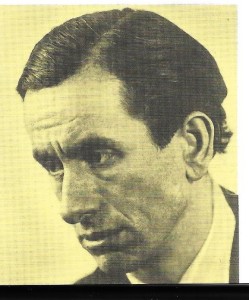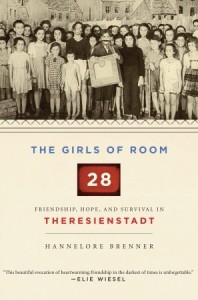
His most notable work, however, the one which would become his legacy, was a children’s opera called Brundibar, the final work he completed before being transported to Terezin on August 10, 1942. In Terezin, he produced an arrangement of the opera which became wildly successful, performed a total of 55 times. The premise was straightforward: two poor children, a brother and sister named Pepicek and Aninka, go to the market one morning, hoping that by singing they will be able to raise enough money to buy milk for their sick mother. A cruel organ grinder named Brundibar bullies the children and prevents them from singing. Pepicek and Aninka are joined by a dog, cat, and brave sparrow and the children of the town and together they prevail over the tyrannical organ grinder.
The message of triumphing over a tyrant resonated strongly with many people imprisoned in Terezin, which may have contributed to its popularity. It also provided a creative outlet for the children in Terezin, and those who survived remember how participating in the opera offered them a temporary relief from the horrors of their daily life in the camp.
Brundibar was involved in the Terezin deception, as it was performed for the Red Cross and featured in a propaganda film shot at the camp. This is by far the darkest aspect of the opera, the way in which it was exploited by the Nazis. At the same time, Brundibar should be remembered for the respite it provided for the children of Terezin.
Hans Krasa continued to compose in Terezin but Brundibar is by far his best remembered work. In October 1944, Krasa, along with other composers and many of the children who performed in the opera were put on a transport to Auschwitz where most were murdered upon arrival, including Krasa. He is memorialized by the opera Brundibar, which continues to be performed to this day.
Below: Clip of Brundibar performance at Terezin
http://https://www.youtube.com/watch?v=b_Qcw5FMrG8
Below: This video tells the story of the children’s opera Brundibar, and follows a present-day staging of the opera.
http://https://www.youtube.com/watch?v=GN23q-Yrbrk
Picture of Hans Krasa from Krizkova, Marie R., Kotouc, Kurt J. & Ornest, Zdenek. We Are Children Just the Same: Vedem, the Secret Magazine of the Boys of Terezin. The Jewish Publication Society, 1995. Print. Used with permission.
More on Hans Krasa and Brundibar:
We Are Children Just the Same: Vedem, the Secret Magazine by the Boys of Terezin (by Marie Krizkova, Kurt Jiri Kotouc and Zdenek Ornest)
http://www.theguardian.com/music/2003/sep/06/classicalmusicandopera
